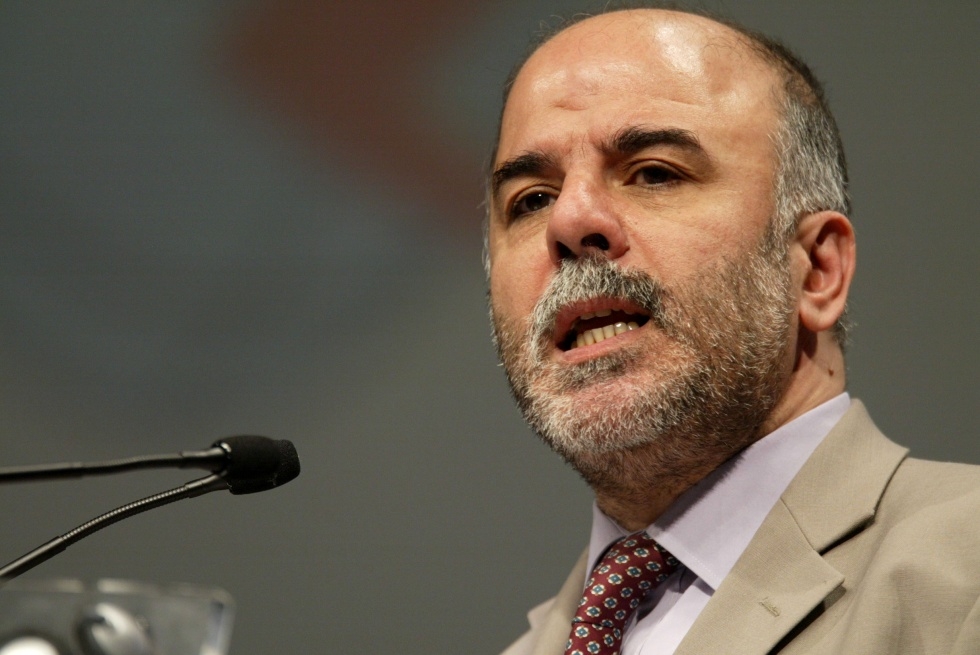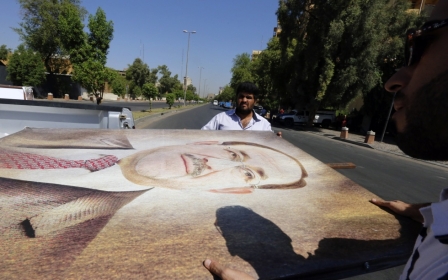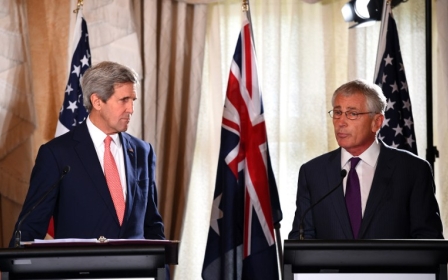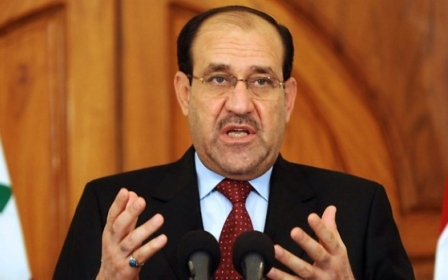Careful what you wish for in Iraq

Be careful of what you wish for, because it might just happen. This pretty much applies to all those who were dying to see an end to the Iran-backed Prime Minister of Iraq, Nuri al-Malki. A radical Shiite affiliated with the Islamic-driven Dawa Party, Malki has ruled Iraq through a controversial sectarian network since 2006. His opponents accuse him of self-morphing into a “tiny” Saddam. This week their wish came true. Iraq’s new President Fouad Masoum literarily threw the prime minister away and asked Haydar Abadi to form the new Iraqi government.
Overnight, the all-powerful Malki began his long march into history. Sourly biting his lips, he still has not fully digested what happened to him. Tall and proud, Haidar al-Abadi is now bracing himself to become Iraq’s fourth premier since downfall of the Saddam regime back in 2003. He will be creating his country’s sixth government in 11 years. Few if any had heard of the salt and pepper haired, lightly bearded politician prior to this week. So insignificant was Haydar Abadi in Iraq’s who’s who that nobody even bothered to make a Wikipedia entry for him in Arabic. Perhaps, his appointment is a blessing-in-disguise for Iraq. Or perhaps - just perhaps - Abadi will soon emerge as an edited version of Nuri al-Malk; different by name and appearance, but certainly, neither by policy, and nor by substance.
Abadi was born into a secular upper class Shiite family from Baghdad in 1952. He grew up in the Karrada neighbourhood, a high-end mixed district surrounded by water on both sides and inhabited by a colourful assortment of well-to-do Christians, Sunnis, and Shiites. He was raised in relative comfort, schooled with the city’s elite. Abadi’s father, “Jawad Bey” as they called him in Arabic, was a prominent physician who headed the Baghdad Neurology Hospital. He also worked with the Ministry of Health but was discharged in 1979, along with 42 doctors, for questionable loyalties to the Baath regime. After making a local name for himself as a teen soccer champion in Baghdad, the young Abadi studied electrical engineering at Baghdad University, graduating in 1975. His first job was in academia, teaching briefly until traveling to the UK for his graduate and post-graduate studies from the University of Manchester. He graduated in 1980.
At the age of 15, Abadi joined al-Dawaa, the oldest party in the Shiite underground, created by turbaned clerics back in 1957. It was a strange decision for someone raised in secular Baghdad of the 1950s and early 1960s. Al-Dawa promoted Islamic values and ethics, promising to combat secularism and create an Islamic state in Iraq. This of course was during the heyday of firebrand secular Arab nationalism. Abadi would attend party meetings in secret, and as a young child, often asked to distribute pamphlets and manifestos. When he went to the UK, Abadi was charged with recruiting new members and handling the al-Dawa’s student body in London. In 1979, he was voted into the Executive Committee and one year later, became president of its Beirut-based Middle East Branch. The Baath regime cancelled his Iraqi nationality in 1983 and Saddam Hussein hunted and arrested two of his brothers. One was a university teacher and the other was a civil servant. Both were executed on charges of membership in al-Dawa. This created a permanent mental scar in Abadi’s psyche - one that did not heal until his return to Baghdad after Saddam’s fall in 2003. During a long exile he served first as the party’s spokesman, and then, as a member of its Political Bureau.
After Saddam’s downfall, Abadi returned to Baghdad, applied for his Iraqi passport once again, and became Minister of Telecommunications in the cabinet of prime minister Iyad Allawi, charged with restoring landlines lines and bringing cellular phones and the Internet into every Iraqi home. Both had been exclusive for Saddam’s inner circle up to 2003. Allawi and Abadi had plenty in common. Both were secular Shiites, both were part of the pre-Baath Iraqi notability. Both had challenged Saddam Hussein and both had chosen exile in London. Both had death warrants hanging over their heads during the Saddam Era and both rose to fame and fortune after the 2003 occupation of Iraq. Allawi made him adviser in 2005. That same year he was voted into a parliamentary committee charged with reconstruction and investment in Iraq. In 2006, he became a Baghdad MP. He was re-elected in March 2010, this time on a State of Law Coalition Ticket, running behind Nuri al-Malki himself. By the summer of 2014, had become Deputy Speaker of the Iraqi Parliament.
Abadi is not a moderate - far from it - and nor is he less Islamic driven than Nuri al-Malki. Between the years 1999-2003, this man taught Quranic Studies and Islamic jurisprudence at the Islamic College for Advanced Studies in London. These subjects are not entry level freshmen classes. They require Islamic scholars to teach them. He has authored essays and books on Islamic interpretations in both Arabic and English. Meaning, Shiite Islam is the crux of his ideology. And he couldn’t possibly have been named premier without the blessing of the Iranian government.
Earlier this summer when speaking to The Huffington Post, Abadi came this close to openly inviting Iran to intervene politically in Iraq and help combat Islamic State (IS) advances in Mosul. “We are waiting for the Americans to give us support. If US strikes happen (which they did last week), then we don’t need Iranian air strikes. If they don’t, then we may need.” Although hailing from the same party as Malki, he nevertheless enjoys much broader cross-sectarian support within the Sunni community, and has strong friendships in Iraqi Kurdistan. Additionally, he appeals to Baghdad’s moneyed elite and its “old money” who remember only too well his family background - unlike Malki, an unrefined upstart with humble origins who emerged from seemingly nowhere to run the country for seven long years.
Will he form a cabinet of national unity? With his track record, the answer is yes he probably will. Will he succeed in a country ablaze by war and wedged between Iranian ambitions and snowballing chaos of the Arab World? Time will tell.
- Sami Moubayed is a Syrian historian and former Carnegie scholar. He is the founder of the Damascus Foundation for Historical Studies and author of “Syria and the USA” (IB Tauris, 2012).
Photo credit: Iraq prime minister designate Haidar al-Abadi at a conference in 2003 (AFP)
New MEE newsletter: Jerusalem Dispatch
Sign up to get the latest insights and analysis on Israel-Palestine, alongside Turkey Unpacked and other MEE newsletters
Middle East Eye delivers independent and unrivalled coverage and analysis of the Middle East, North Africa and beyond. To learn more about republishing this content and the associated fees, please fill out this form. More about MEE can be found here.





